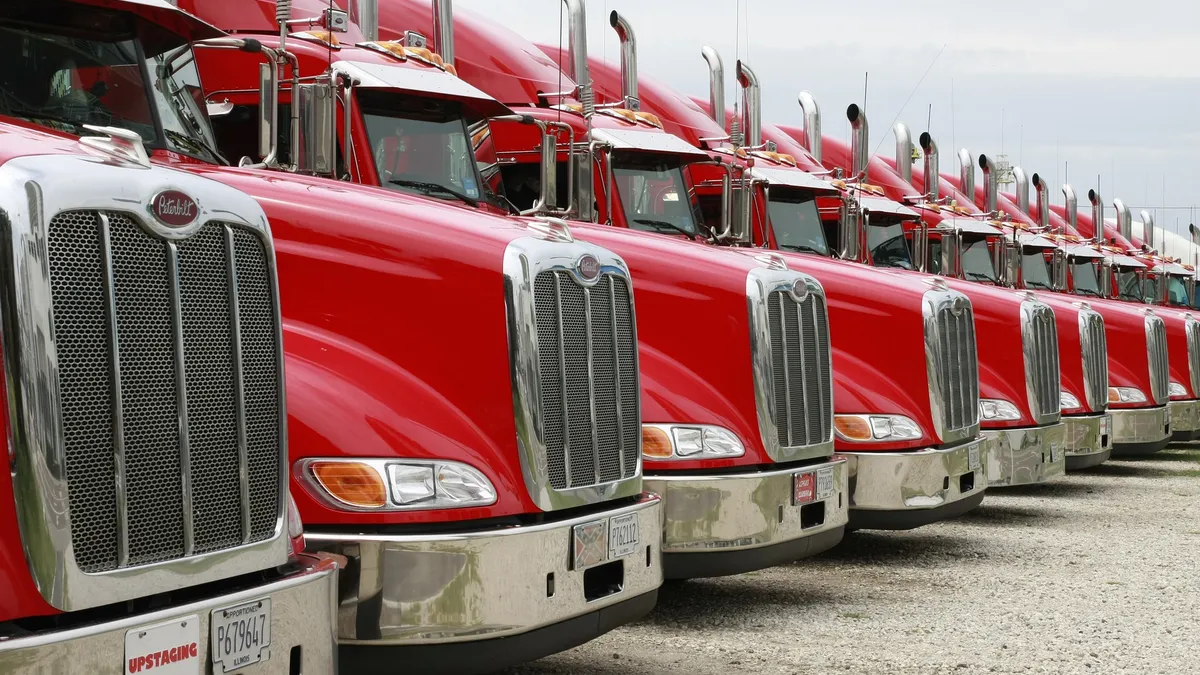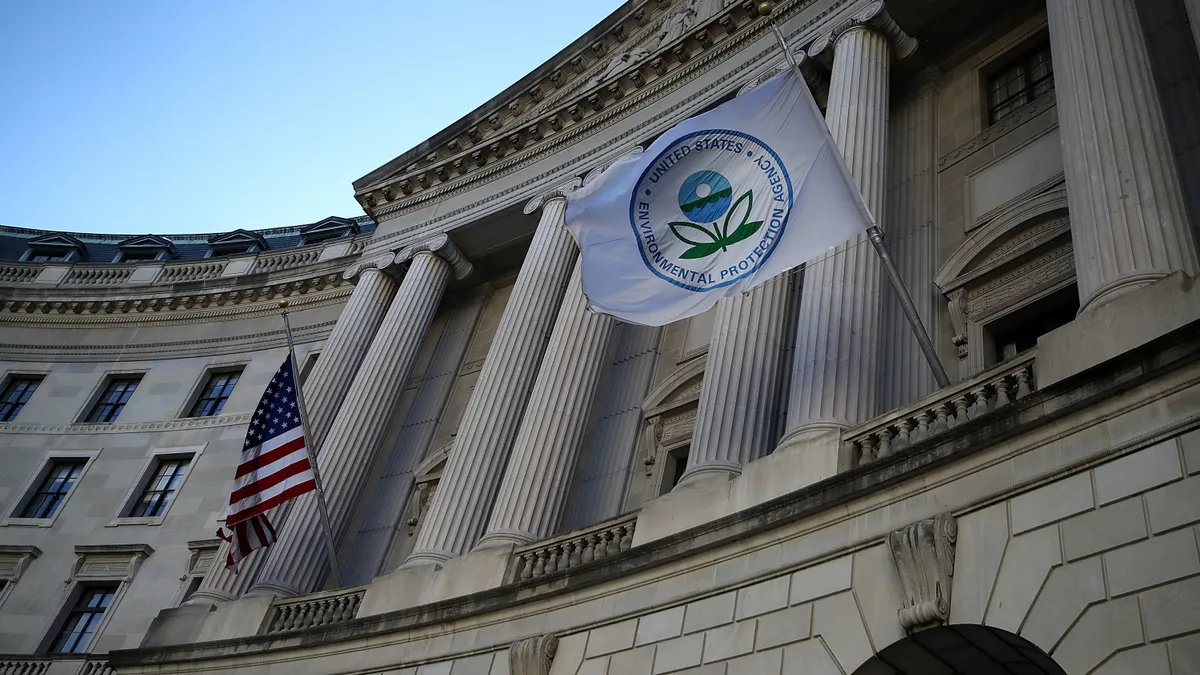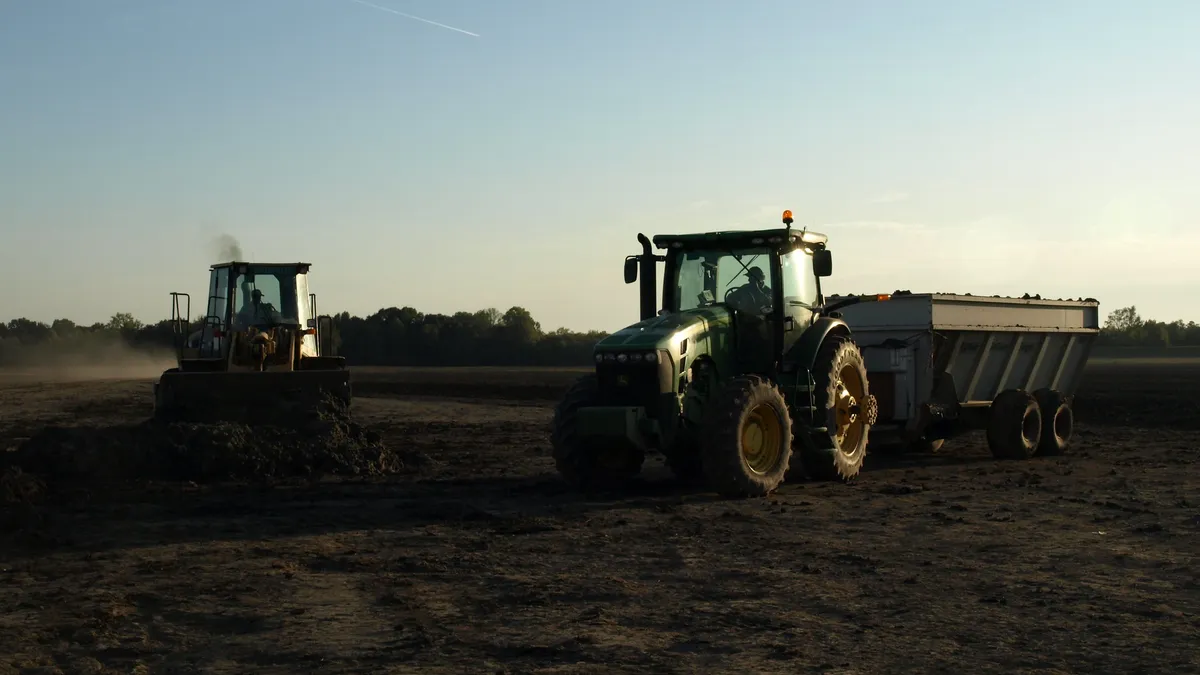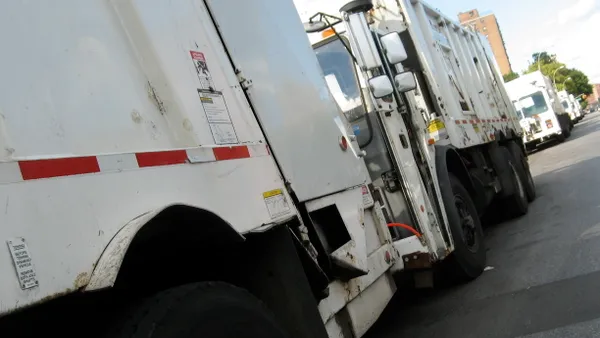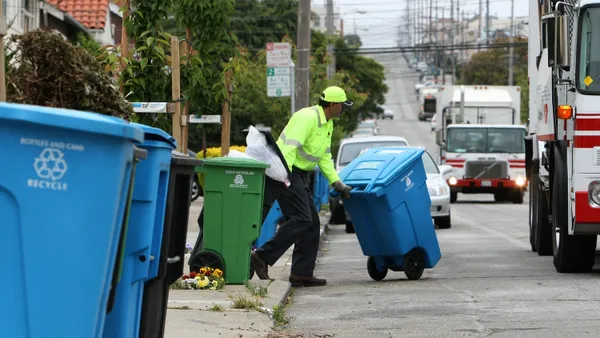Dive Brief:
- The Supreme Court has chosen not to hear an appeal against the electronic logging device (ELD) mandate, Todd Spencer, Executive Vice President of the OOIDA told Supply Chain Dive at an FMCSA meeting Monday.
- The OOIDA had challenged the Department of Transportation's final rule on the basis of privacy and protection against warrantless search and seizure. However, its challenge had been struck down several times, leaving the Supreme Court as the association's last hope.
- Asked if this meant the battle was over, Spencer said there was already a wide consensus the industry would have trouble meeting the December 2017 deadline for ELDs. UPS, a prominent supporter of the mandate, recently asked for several exemptions from the mandate, as one example.
Dive Insight:
Today's refusal by the Supreme Court to reconsider the OOIDA's argument against the ELD mandate ends the war over industry adoption of ELDs after years of legal battles and arguments regarding driver privacy, the efficacy of HOS laws and even parking issues.
Now, the battle extends to effective implementation of the devices, as drivers nationwide must comply with a patchwork of state legislation, company standards and terms of employment as well.
With the fait accompli in place, shippers may wonder what to expect. Rates could rise as much as 20%, prompted by a massive dropout by independent drivers unable to stomach the cost of implementation. This is possible, but unlikely to happen soon, given that drivers have until December 2019 to fully comply. Chances are the industry will adapt, though many within it will do so begrudgingly.
A brief history of ELDs and their opposition
ELDs have been around far longer than some of the drivers fighting against their implementation. A crude version of the devices debuted in the mid-1980s, though wireless reception was poor. Later in the decade, in the first politicized move on behalf of ELDs, the Insurance Institute for Highway Safety (IIHS) undertook to lobby the Department of Transportation for a mandate requiring their widespread adoption.
Then, in 2000, the FMCSA made its first concerted effort to limit hours of service (HOS) via the use of ELDs. A court order ended the effort in 2004. A full decade later, a second attempt was launched, this time with greater success, as the Federal Register carried an announcement that the Department of Transportation would now allow the FMCSA to require ELDs for those carriers with the worst history of HOS compliance. This paved the way for the 2012 passage of the MAP-21 Act (Moving Ahead for Progress in the 21st Century), which required the FMCSA to develop an ultimate rule mandating ELDs.
In December 2015, the final ELD mandate appeared. It appeared the war was won.
Not so fast, argued the OOIDA, which launched continual, often successful challenges to the mandate. Other final rules, such as that created in 2015, had appeared on two previous occasions, yet were vacated by the D.C. Circuit Court (2004, 2007) and the 7th Circuit Court of Appeals (2011).
The main arguments offered by the OOIDA and others revolved around concerns over privacy, harassment and improper cost-benefit analyses, court documents showed. The latter two arguments prompted circuit courts to reject the rule, which may have emboldened the plaintiffs to add a further concern over fourth amendment protections.
Perhaps that was the straw that broke the judiciary's back, as the same court that rejected the rule in 2011 reversed itself in late October 2016. Arguing that corrections to previous errors within the final rule had now been made, the judges handily rejected further OOIDA appeals.


